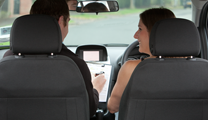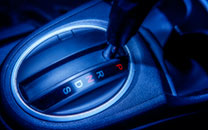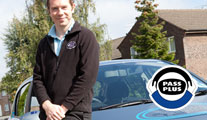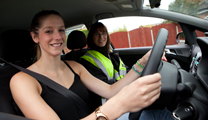If you have previously failed a driving test or are nervous to undergo your first exam, you are far from alone. We understand the difficulties that come with passing your test. There are errors that are made by the majority of drivers, but it doesn’t mean you can’t pass your exam. In reality, all it takes is for you to be more aware of what the examiner expects of you as opposed to doing what you deem as the right thing. Let’s take a look at some of the main reasons people struggle with their driving exam and how these can be avoided.
Speeding
Surprisingly, speeding during a driving exam is in the top ten faults amongst all learner drivers. Although this may seem like people are being careless, driving at the correct speed is harder than you may think. There are many places in which speed signs are not visible, especially when driving at night. This can result in drivers going too fast or too slow – yes, you can actually fail your test for driving too slowly. The best way to avoid speeding difficulties is to learn the rules of different roads. For example, if you are driving on a road with streetlights, the speed limit is 30mph unless a sign says otherwise. Similarly, a dual carriageway’s speed limit is always 70mph unless stated otherwise.
Poor Use of Mirrors
Although you must use your mirrors throughout learning and the test itself, it is alarming how many people fail due to not using them adequately. However, do not worry – this is an easy mistake to make. When pulling out at a junction or overtaking a vehicle, it is easy to take a glance at your mirrors and feel you have done a sufficient job. What most people don’t realise is that you must continuously look at all your mirrors for the whole process as the angle your car is at dictates what you can see.
Manoeuvres
The word ‘manoeuvres’ alone can terrify learner drivers. Most people fail their test by making an error whilst performing a manoeuvre. This is often due to nerves – the driver has to delay fellow road users, thus causing panic. Although it may seem simple, the key to passing this stage of your test is to relax and take your time. There is no rush to complete your manoeuvre but remember to constantly check your mirrors whilst doing so. The following manoeuvres can be practiced on a quiet road:
- Bay parking.
- Parallel parking.
- Emergency stops.
- Turn in the road.
- Reverse around a corner
Theory Test
It is not always the physical act of driving that causes someone to stop trying – many people don’t even begin their driving lessons. One of the main causes is the difficulty of passing the driving theory test. With the theory syllabus spanning across many different categories, many learners are put off at the first obstacle. This is understandable as learning so much at one time may seem a daunting experience. However, there are smartphone apps that break down the learning into small, easy to digest sections. With this, you can revise one section each week, and within a couple of months, you will be well suited to passing your theory.











